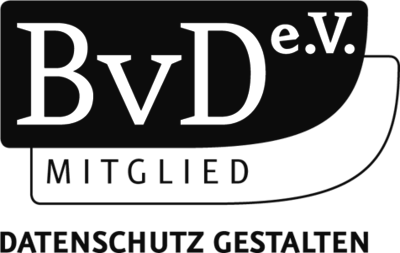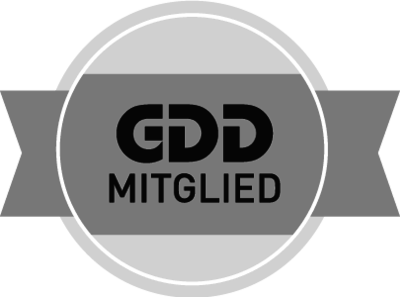Whistleblower protection - remedying grievances, improving corporate culture.
Since December 2023, all companies and organisations with more than 50 employees must set up an internal whistleblower system. Implementation can be a challenge for companies. The @-yet helps you to establish clear structures and processes to prevent internal grievances and strengthen employees’ trust in their own company.
Whistleblower protection promotes employee trust
A whistleblower system supports you in fulfilling your compliance obligations. Much more important than this, however, is gaining the trust of your employees. The protection of whistleblowers underlines your commitment to transparency and ethical behaviour. This has a noticeably positive impact on your corporate culture. Employees feel safer to report grievances without fear of being penalised. This leads to early identification and rectification of problems and promotes open communication. Your employees have a more positive perception of your company.
For transparency, against corruption
The Whistleblower Protection Act has been in force since December 2023
The Whistleblower Protection Act is based on Directive (EU) 2019/1937, which was adopted by the European Parliament and the Council on 23 October 2019. This directive aims to establish a uniform minimum standard for the protection of whistleblowers. It was introduced to provide whistleblowers with a secure framework. The aim is to publicise abuses such as corruption, financial fraud or discrimination within the company without the whistleblowers having to fear reprisals or legal consequences. This is intended to encourage them to report offences without fear of personal detriment. This is crucial for maintaining transparency and integrity within the European Union.
The Whistleblower Protection Act covers a wide range of potential offences. These include corruption, environmental pollution, misuse of public funds, violations of labour rights and discrimination. The law not only ensures the protection of whistleblowers. It is also a decisive step towards effectively combating and preventing such practices.


Mastering the challenges of the Whistleblower Protection Act
Introducing whistleblower protection in line with legal and data protection requirements
Companies face many challenges when implementing whistleblower protection. The protection of whistleblowers is a top priority. The first challenge is therefore to set up secure reporting channels. These must ensure the confidentiality of a report through technical and organisational measures. Another important aspect of this is ensuring data protection when processing reports.
Employees must be comprehensively informed and trained about the reporting channels and the protection of whistleblowers. This includes raising awareness of the importance of whistleblowing. The administration of the reporting systems and the processing of reports received requires human and financial resources. This is a particular challenge for smaller companies with limited personnel capacities. An even greater hurdle can be the creation of a corporate culture that recognises and supports whistleblowing as a positive contribution. Such a cultural change requires long-term persuasion and change processes.
In addition to these aspects, the legal complexity of the topic itself is a challenge. The lawyers at @-yet are at your side to support you in introducing a whistleblowing system that complies with data protection and legal requirements.
Fear-free, simple and motivating
Understanding whistleblowing as a positive contribution
For many companies, the introduction of a whistleblowing system is mandatory. However, despite all the associated challenges, such a system brings many advantages for your company. You recognise breaches of laws, internal guidelines or compliance regulations at an early stage. This enables you to react quickly and effectively. You effectively minimise the risk of financial losses due to fines or claims for damages.
By implementing such a system, you show that you are aware of your responsibility for ethical behaviour. This not only strengthens the trust of your employees, but also that of your customers and business partners.
The whistleblower system also contributes to a more open and trusting corporate culture. Your employees can report grievances without fear of reprisals. You will notice this in higher employee satisfaction and greater commitment.
By introducing the whistleblower system, you demonstrate that trusting relationships with your employees are important to you. This will have a positive effect on the working atmosphere and will also be a decisive advantage when recruiting qualified specialists. With the support of @-yet, you show that trust is important to you.
Specialist lawyers support you with whistleblower protection
The requirements of the Whistleblower Protection Act can be a complex challenge for many companies. In order to fully cover all legal aspects, a team of experienced specialist lawyers is on hand to help you implement these requirements. If you have any questions about whistleblower protection, please do not hesitate to contact us.
@-yet whistleblower protection
What can @-yet do for you?
Whistleblower protection means remedying grievances and improving corporate culture. Since December 2023, all companies and organizations with more than 50 employees must set up an internal whistleblower system. Implementation can be a challenge for companies. @-yet helps you to establish clear structures and processes to prevent internal grievances and strengthen the employees’ trust in their own company.
Methodology of @-yet in whistleblower protection
How @-yet works
Whistleblower protection with @-yet
These are your advantages
With @-yet, you can protect what is most valuable.
Arrange your free, no-obligation consultation now.
Arrange your personal appointment now for a non-binding and free consultation. Our security and data protection experts will be happy to answer your questions.
Direct contact:
Phone: +49 2175 16 55 0
Email: info@at-yet.de
Or via this form.
We look forward to hearing from you!